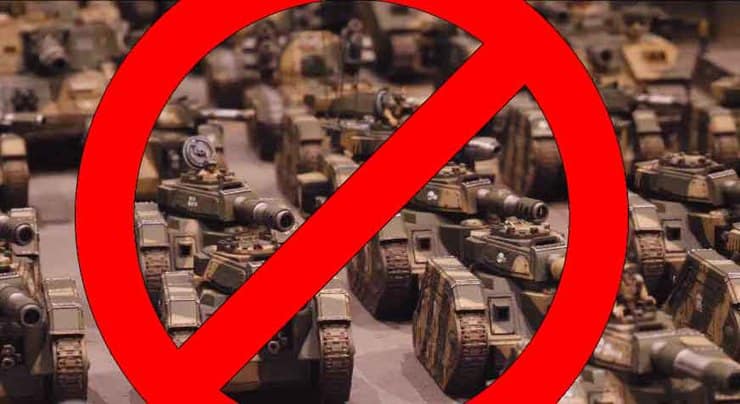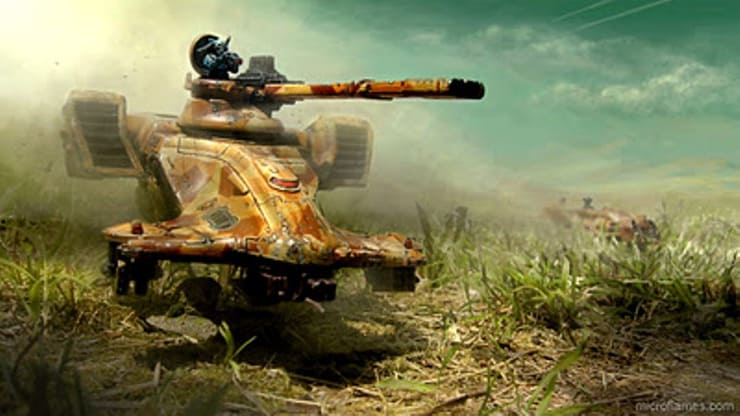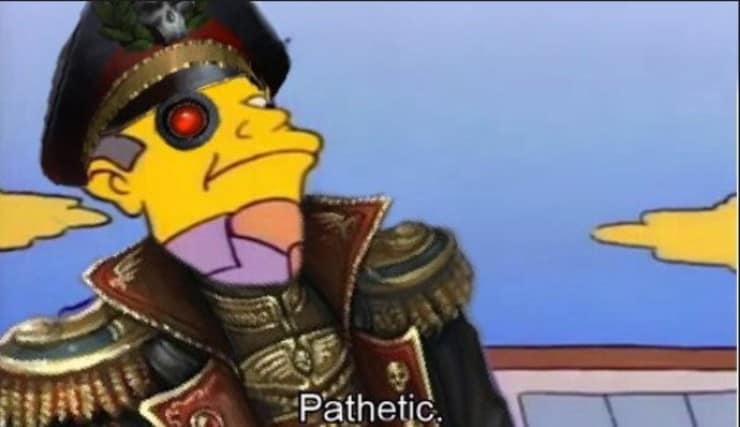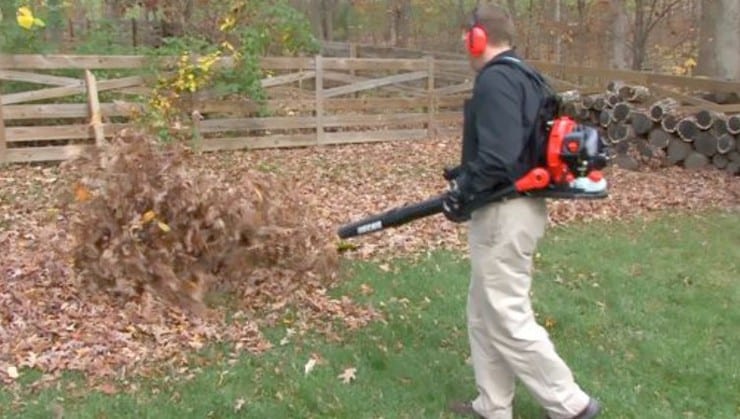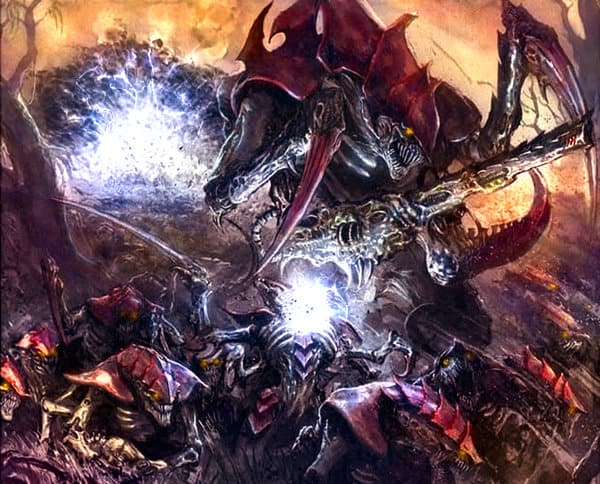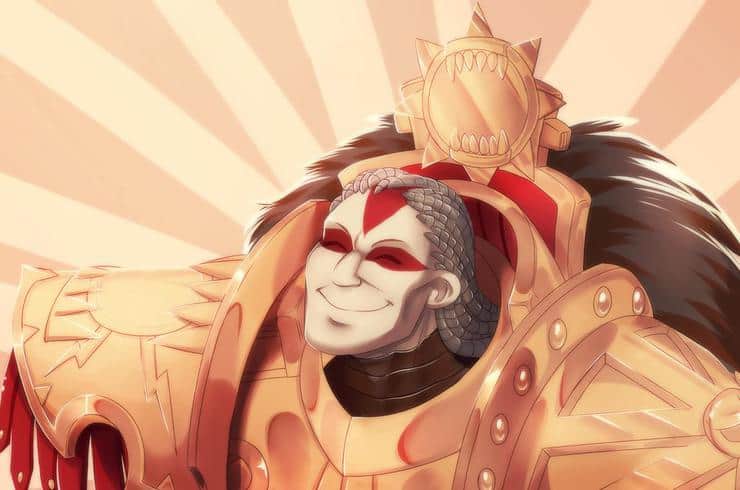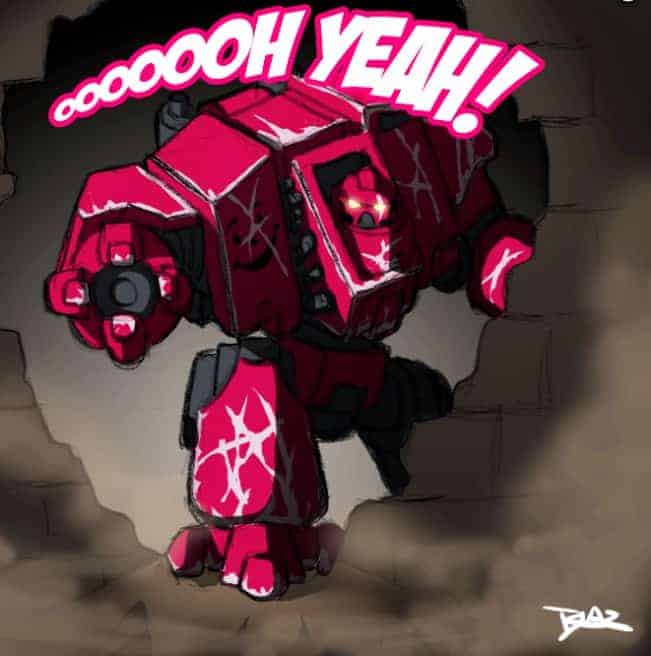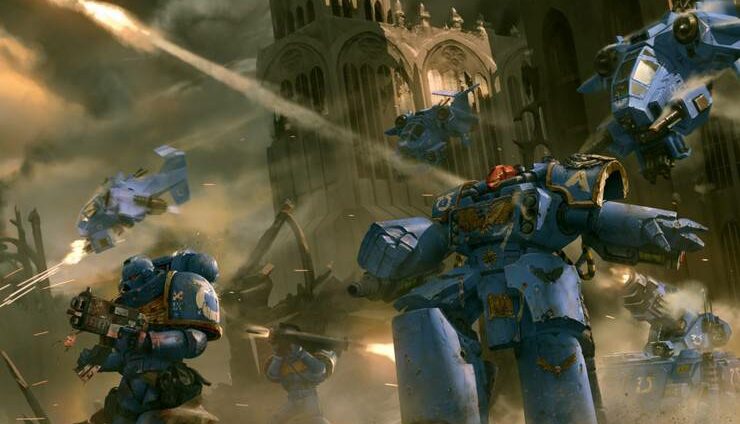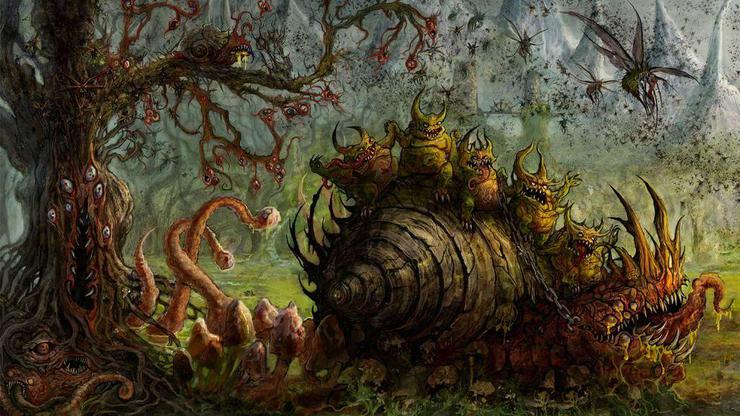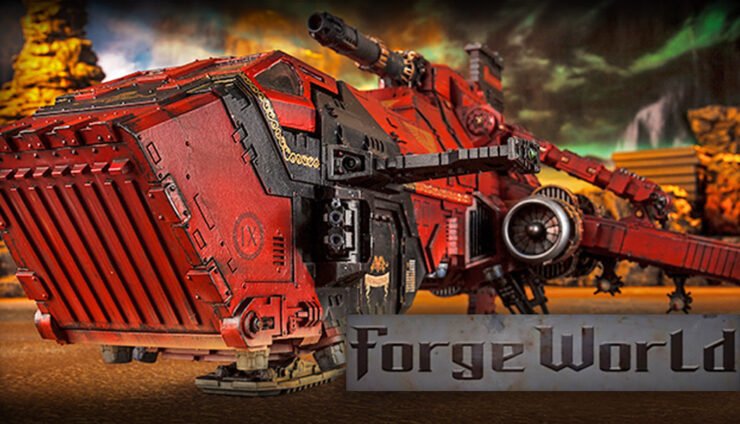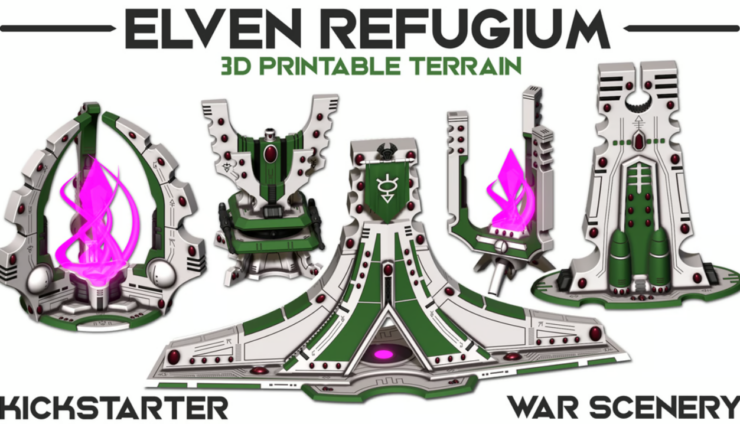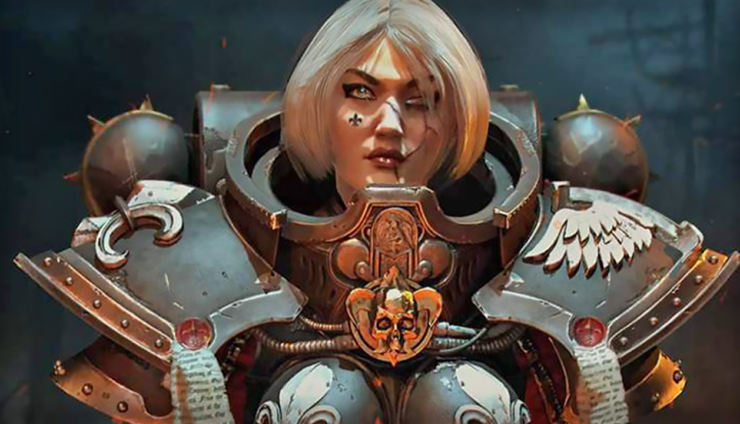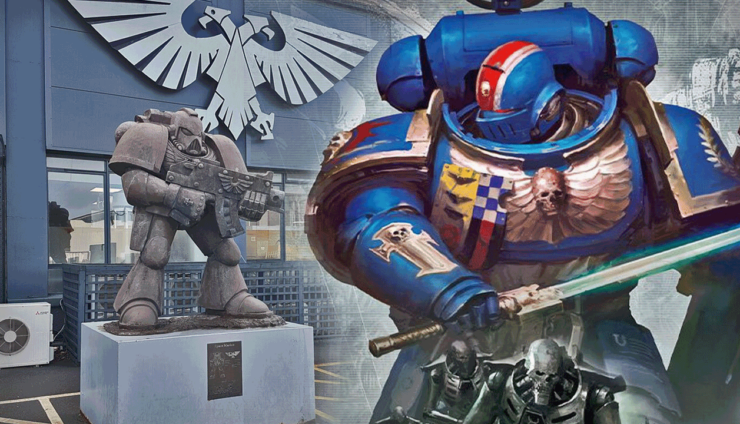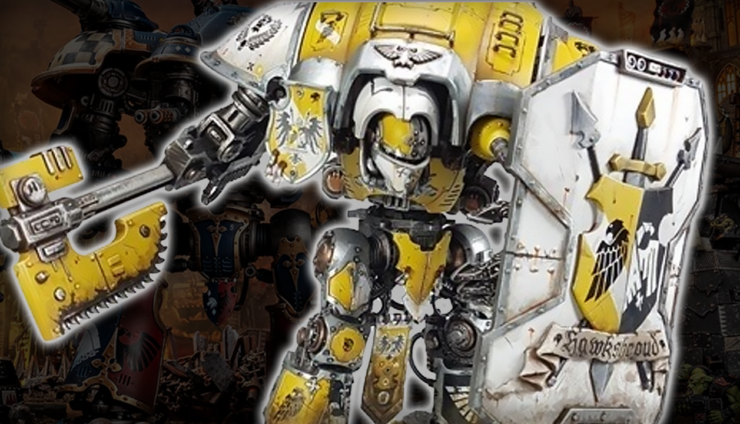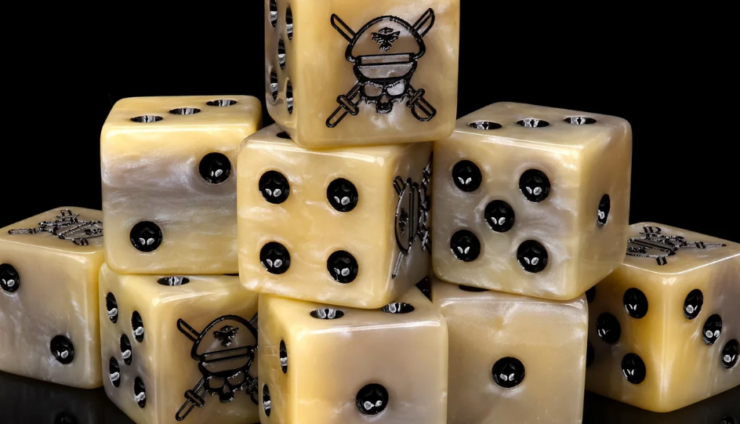There always seems to be drama after any Warhammer 40k GT for as long as any of us can remember. Here is what one writer thinks is the truth about 40k competitive play.
JStove is back! He’s letting the big LGT debacle simmer down before he writes about it. Now he’s got something on his mind about competitive play, and it’s time to talk about it.
The LGT Blues
First of all, I think Tau Alleged McCheatypants, as I’m calling him because I’m not using his real name because I don’t know the guy so it’s not that fair to blast him on the internet, (anyone who cares already knows his name anyway) was up to something shady. I don’t want to accuse him of cheating outright. I’ll just point out that there were accusations and that he seemed to be the only guy with a top list that had crap sportsmanship scores. That’s where I get off.
What I do believe is that cheater or not, he was used as a scapegoat to cover up some of the major organizational problems with the LGT. Those guys definitely bit off more than they can chew. Let’s hope they clean it up and put on a better show next year.
Truth About Competitive Play
In the wake of the LGT dust-up, with everyone making fun of the goofy tables and beating up Top Table Tau McMaybeCheated, a lot of really uninformed, booty poop opinions came out about the competitive 40k scene and how much of a circus it is, and how much the people that are in it suck. A lot of these opinions were of the typical internet variety, meaning they were uninformed and they smelled bad.
So Let’s Set Some Things Straight.
Competitive Tournament List =/= no fun allowed table your army on turn 1 list.
As a lot of serious competitive players have mentioned, competitive lists typically aren’t win-on-turn-1 lists. Are there win-on-turn-1 competitive lists? Absolutely, because 8th edition is the most lethal edition of the game that has ever existed. However, you are less likely to run into a leaf blower at a tournament than you are at a Saturday morning throw down in your game store. There’s a reason for this- Tournament lists are built to succeed in a tournament rules packet. That packet, if it’s ITC, has been fine-tuned to be as balanced as possible for over a decade. You’re more likely to get hosed off the table fighting someone using Maelstrom of War scenarios out of the rulebook.
Independent tournament packet lists are often way more tuned to mobility and survival. Case in point- in ITC format, dreadnoughts are extremely popular because they are low priority targets that don’t surrender a lot of secondary points. But dreadnoughts strictly aren’t as good as other monsters or vehicles in their weight class. So if you see an ITC list, it’s probably going to have dreads in it, even though dreads are chumps and would never make it into a hoser list.
Most of the Competitive Crowd are the Nicest Guys You’ll Ever Play
The best part about top-level 40k is that 99% of the competitive crowd has paid good money not to play with jerks. When you’re a casual Saturday player, you assume that because the competitive guys are playing loaded lists, no fun is allowed. This is the exact opposite of what’s really happening. The guys who are super into competing are paying tons of cash to play. They are flying in from all over the country. They’re paying ridiculous baggage prices for checking their army transports., Then they’re paying for food, lodging, and tournament registration.
You have to assume that the average out-of-towner coming in for a tournament is down at least 500 bucks just to show up. Do you think anyone who pays $500 just to haul their army through the living hell that is LAX wants to play 40k with a bunch of ignoramuses? You better be on your best behavior and turn your sportsmanship up to 11. Nobody is paying that much cash to play you if you’re an imbecile. That’s why 99% of the tournament crowd comes correct and are chill as hell to play.
Competitive Coverage
When I went to cover The Long War Doubles a minute ago at SoCal Games and Comics, who I will plug the hell out of for free because their shop is sick as hell and has a great spread and everyone should go there, we had the Maui Boys flying out from Hawaii to play in Temecula, and they were pretty much the chillest dudes that ever rolled dice.
For the record, having been to both places, I can tell you that the worst, most lava-covered part of Hawaii is still a lot better than pretty much any part of Southern California that is 20 minutes or more from the beach. Inland California is basically just Texas but without barbecue, guns, and full-nude gentlemen clubs.
So if you’re flying out of Hawaii to play 40k in Diet Texas, you better have your sportsmanship game locked up tight.
The Greatest Benefit of Competitive Play is What it Does for Uncompetitive Casuals
There are basically 2 codexes in the game where almost everything in the book is useful. Those 2 codexes are Guard and Tyranids.
In every other book in the game, pretty much half the codex is unusable trash, either because the costing is wrong, the unit underperforms or doesn’t synergize with the rest of the army, or there’s just another unit in the same book that does the job cheaper or better. Some armies, like Space marines, have such a deep bench of options that some of them are going to always stink. When’s the last time you even saw a whirlwind? It’s an endangered species.
The job of competitive play is to find a weakness, exploit it, then fix it. Keeping the game perfectly balanced is fundamentally impossible. It can be very good, but never perfect. The bench of units that exist across the spectrum of models is too deep for it to ever be ideal, it’s like herding cats.
With competitive play weeding out the spam, the units that cost too little or perform too much, the stuff that’s truly broken, the process of design evolution and fixing the leaks happens way faster.
FAQs From the Top
Boots on the Ground? Rule of Three? Smite spam? First turn Deep Strike Alpha? All fixes that made the game better and were created by competitive play.
They started at the top and filtered down to the casual tables, and all this happened for free with no effort required on the part of John Q Saturday Gamer. The competitive player did that for everyone because by smoking out the overpowered shit and getting it fixed, they breathe life into the game and keep it rolling forward.
When units that are too good or too spammy get nerfed, it gives units that were previously low tier a second chance to get into the game, deepening the bench for an army that might have otherwise had a 3 model codex.
Competitive Players Make Hobby Players Happier, if Hobby Players Just Listen.
There’s a huge stereotype in the hobby scene that the competitive players don’t care about hobbying. Then there are hobbyists are crap at the game. Believing this line of garbage is pretty much the fastest way to kill all your fun and hate your hobby.
The biggest reason I got into covering competitive 40k and list optimization was that I was a hobbyist first. I hated putting a lot of effort into my army and then watching it suffer on the table. So rather than blame the opponent for sabotaging my fun, I just sat down and did my homework. Just like everything else in life, ten percent of the effort beats ninety percent of the competition. All you have to do is care a little, and you can make an army work.
It never ceases to amaze me that the people who cry the most are the hardcore hobbyists. They’re frustrated that a model they put so much effort into chump on the table and they don’t know why. That’s why it’s so important for hobby-first players to just fish around a little. Take some advice from someone who really knows the army and optimize a bit.
Dip your toe into a higher level of play and build lists with more teeth. You’ll be happier with your troops when they don’t let you down.
